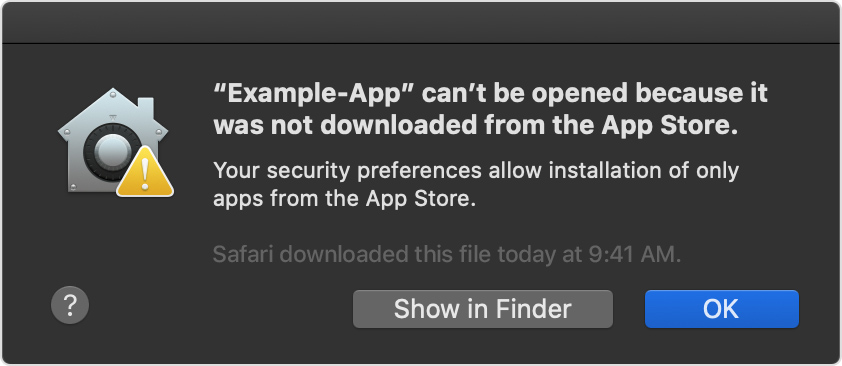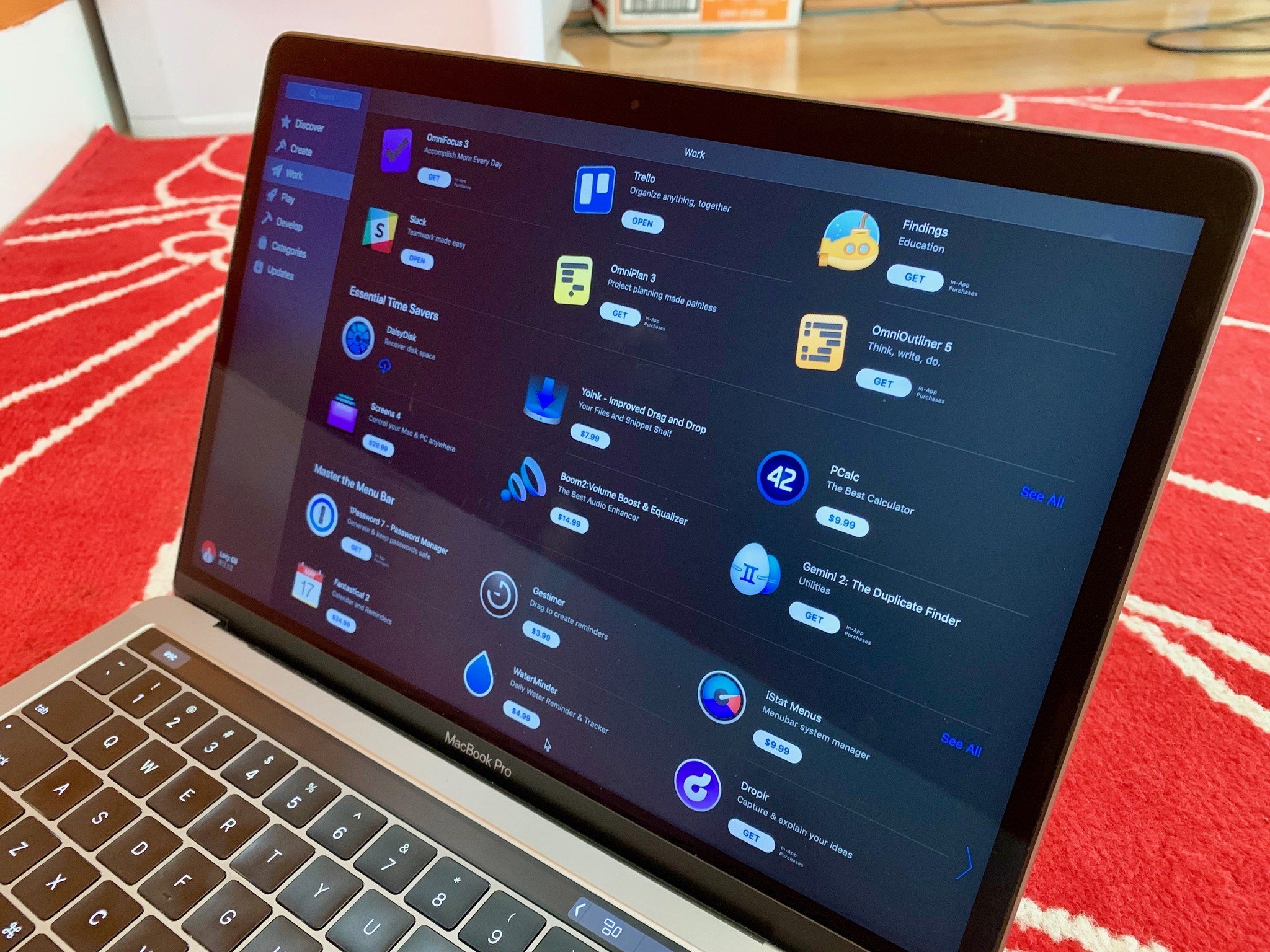The safest place to get apps for your Mac is the App Store. Apple reviews each app in the App Store before it’s accepted and signs it to ensure that it hasn’t been tampered with or altered. If there’s ever a problem with an app, Apple can quickly remove it from the store.
- Mac Not Allowing Apps From Trusted Developers Windows 10
- Allow Apps Downloaded From Mac
- Mac Not Allowing Apps From Trusted Developers Chrome
If you download and install apps from the internet or directly from a developer, macOS continues to protect your Mac. When you install Mac apps, plug-ins, and installer packages from outside the App Store, macOS checks the Developer ID signature to verify that the software is from an identified developer and that it has not been altered. By default, macOS Catalina also requires software to be notarized, so you can be confident that the software you run on your Mac doesn't contain known malware. Before opening downloaded software for the first time, macOS requests your approval to make sure you aren’t misled into running software you didn’t expect.
Running software that hasn’t been signed and notarized may expose your computer and personal information to malware that can harm your Mac or compromise your privacy.
- Downloading third-party apps safely. Unlike the iPhone and iPad, the Mac can run software that's been downloaded from any source, though OS X's default security settings will only allow you to run apps that have been downloaded from the Mac App Store and from 'identified developers'—developers who have a digital certificate from Apple on file.
- If you own these older 32-bit apps, you may need to upgrade to newer Mac App Store versions where available, or you’ll need to wait for the developers to release 64-bit updates.
View the app security settings on your Mac
Mac Not Allowing Apps From Trusted Developers Windows 10
By default, the security and privacy preferences of your Mac are set to allow apps from the App Store and identified developers. For additional security, you can chose to allow only apps from the App Store.
What it comes down to is that Apple is removing the 'Install from Anywhere' option for the 'general user' or the masses of people that are not power users. However as already answered by user Mateusz Szlosek, you can still open unsigned apps via Finder by right. When you allow third-party apps in settings, Mac will not stop installing or updating the apps without developer ID and notarization. It will only stop when you open the installed app. This will make an app unusable with an update in the latest macOS. Navigate to the Download or Application you just installed to your Mac Instead of Double-Clicking on the Icon to open, Right Click on it and choose 'Open' A Pop-Up Window will appear telling you that the Software is from an Unidentified Developer, but it will give you the option to Open it anyway.
In System Preferences, click Security & Privacy, then click General. Click the lock and enter your password to make changes. Select App Store under the header “Allow apps downloaded from.”
Open a developer-signed or notarized app
If your Mac is set to allow apps from the App Store and identified developers, the first time that you launch a new app, your Mac asks if you’re sure you want to open it.
An app that has been notarized by Apple indicates that Apple checked it for malicious software and none was detected:
Prior to macOS Catalina, opening an app that hasn't been notarized shows a yellow warning icon and asks if you're sure you want to open it:
If you see a warning message and can’t install an app
If you have set your Mac to allow apps only from the App Store and you try to install an app from elsewhere, your Mac will say that the app can't be opened because it was not downloaded from the App Store.*
If your Mac is set to allow apps from the App Store and identified developers, and you try to install an app that isn’t signed by an identified developer or—in macOS Catalina—notarized by Apple, you also see a warning that the app cannot be opened.
If you see this warning, it means that the app was not notarized, and Apple could not scan the app for known malicious software.
You may want to look for an updated version of the app in the App Store or look for an alternative app.
If macOS detects a malicious app
If macOS detects that an app has malicious content, it will notify you when you try to open it and ask you to move it to the Trash.

How to open an app that hasn’t been notarized or is from an unidentified developer
Running software that hasn’t been signed and notarized may expose your computer and personal information to malware that can harm your Mac or compromise your privacy. If you’re certain that an app you want to install is from a trustworthy source and hasn’t been tampered with, you can temporarily override your Mac security settings to open it.
In macOS Catalina and macOS Mojave, when an app fails to install because it hasn’t been notarized or is from an unidentified developer, it will appear in System Preferences > Security & Privacy, under the General tab. Click Open Anyway to confirm your intent to open or install the app.

The warning prompt reappears, and you can click Open.*
Allow Apps Downloaded From Mac
The app is now saved as an exception to your security settings, and you can open it in the future by double-clicking it, just as you can any authorized app.
Mac Not Allowing Apps From Trusted Developers Chrome
*If you're prompted to open Finder: control-click the app in Finder, choose Open from the menu, and then click Open in the dialog that appears. Enter your admin name and password to open the app.